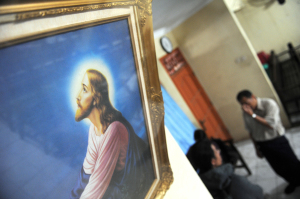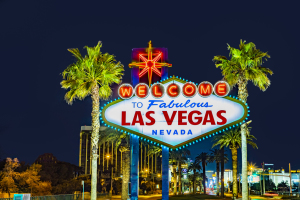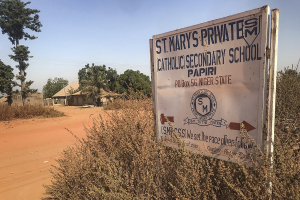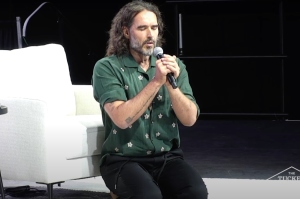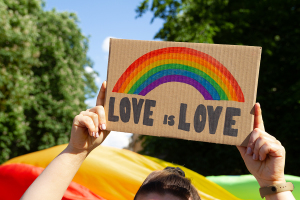Controversial Korean sect leader acquitted of obstructing COVID-19 mitigation efforts
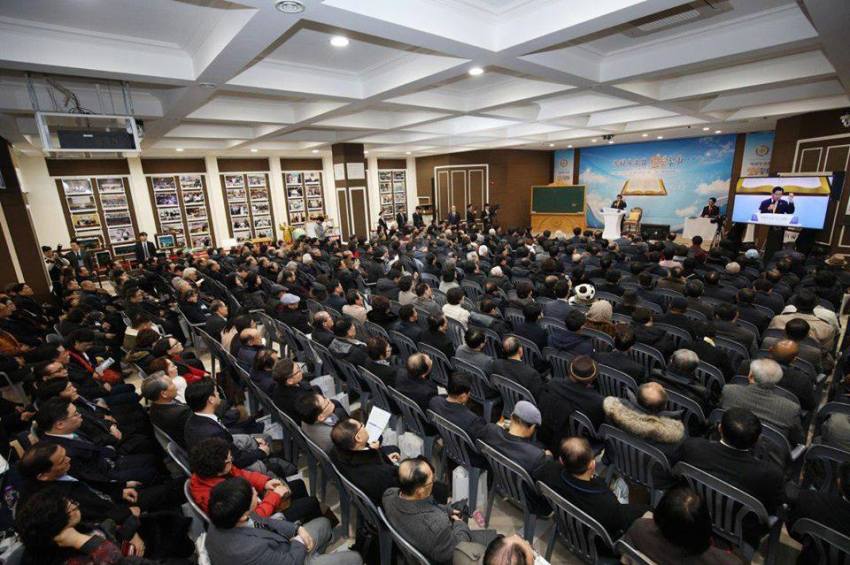
A controversial South Korean religious leader whose church was at the center of a coronavirus outbreak earlier this year has been acquitted of obstructing government efforts to mitigate the spread of COVID-19. However, he was sentenced on charges of embezzling church funds.
Eighty-nine-year-old Lee Man-hee, who heads the secretive sect Shincheonji Church of Jesus and is a self-proclaimed messiah, was arrested last August and charged with holding unapproved religious gatherings and withholding the number of attendees at the gatherings from the government.
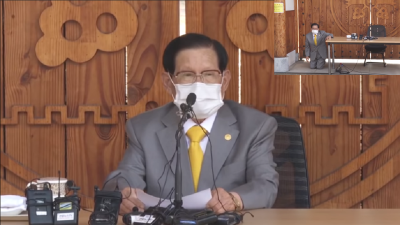
Lee was also accused by authorities of embezzling the equivalent of over $5.1 million from the church, a charge he denies but was convicted of in a local court just south of Seoul, according to South Korea’s Yonhap News Agency.
The news agency notes that the leader was accused of embezzling the funds to build a training center for members and to travel overseas for speaking engagements.
Trouble for Shincheonji Church of Jesus, which many consider being cult-like, began in March when authorities filed a legal complaint against Lee and other leaders for holding worship gatherings deemed to be a violation of the Infectious Disease and Control Act.
According to reports, thousands of members of the church’s branch in Daegu later tested positive for the virus.
The church denied claims that it withheld information from the government and even stated that a list of over 200,000 church members was provided to authorities.
In a statement published Thursday, the sect’s general assembly headquarters said that it “welcomed” the court’s ruling finding Lee innocent of the Infection Disease Control and Prevention Act charge. However, the church criticized the court’s ruling on the embezzlement charge.
“[W]e find the court’s decision that acknowledged criminality in other charges, including embezzlement, deeply regrettable and disappointing,” the statement reads.
“For the charges that have not been ruled innocent, we plan to actively prove his innocence through the appeals process, and stand trial before a court of law once again.”
The church also vowed to “continue in our effort to end the COVID-19 pandemic, and diligently serve as light and salt of the world.”
“Lastly, we apologize to the citizens of this nation for causing worries and concerns regarding this matter,” the statement concluded.
Prosecutors initially sought a five-year prison sentence for Lee and a fine of about $2,700. But he was found partially guilty and sentenced to three years in prison, a sentence that is suspended for four years. Lee, who has denied the allegations, was released on bail in November.
“The health authorities' request to Shincheonji for a list of church members' names and its facilities cannot be regarded as an epidemiological survey," Judge Kim Mi-kyung of the Suwon District Court was quoted as saying by the South Korean media outlet.
"We cannot punish someone on charges of obstructing antivirus efforts for leaving out certain data, when [the request] had more to do with data collection than an actual epidemiological survey.”
The church has complained that its members have been attacked and faced persecution as it has been widely accused of being a coronavirus hotspot and trying to thwart the mitigation of COVID-19. Last February, health authorities reported that the church’s followers were linked to more than two-thirds of all confirmed coronavirus cases in South Korea.
Last March, the U.S. Commission on International Religious Freedom warned about how society and government responses to the pandemic have hampered religious freedom. The congressionally mandated commission responsible for advising Congress and the State Department cited South Korea as a “vivid example of how public health emergencies can increase the risk to marginalized religious groups.”
In a report, USCIRF stated that Shincheonji Church faced “considerable criticism and even harassment from the South Korean government and society.” The independent, bipartisan body warned that the sect was also facing increasing pressure from Protestant groups in the country.
“Although some government measures appeared to be driven by legitimate public health concerns, others appeared to exaggerate the church’s role in the outbreak,” USCIRF stressed at the time. “The government of Seoul locked down Shincheonji churches in the capital, and some mainline Protestant groups have accused the church of deliberately spreading the disease.”















